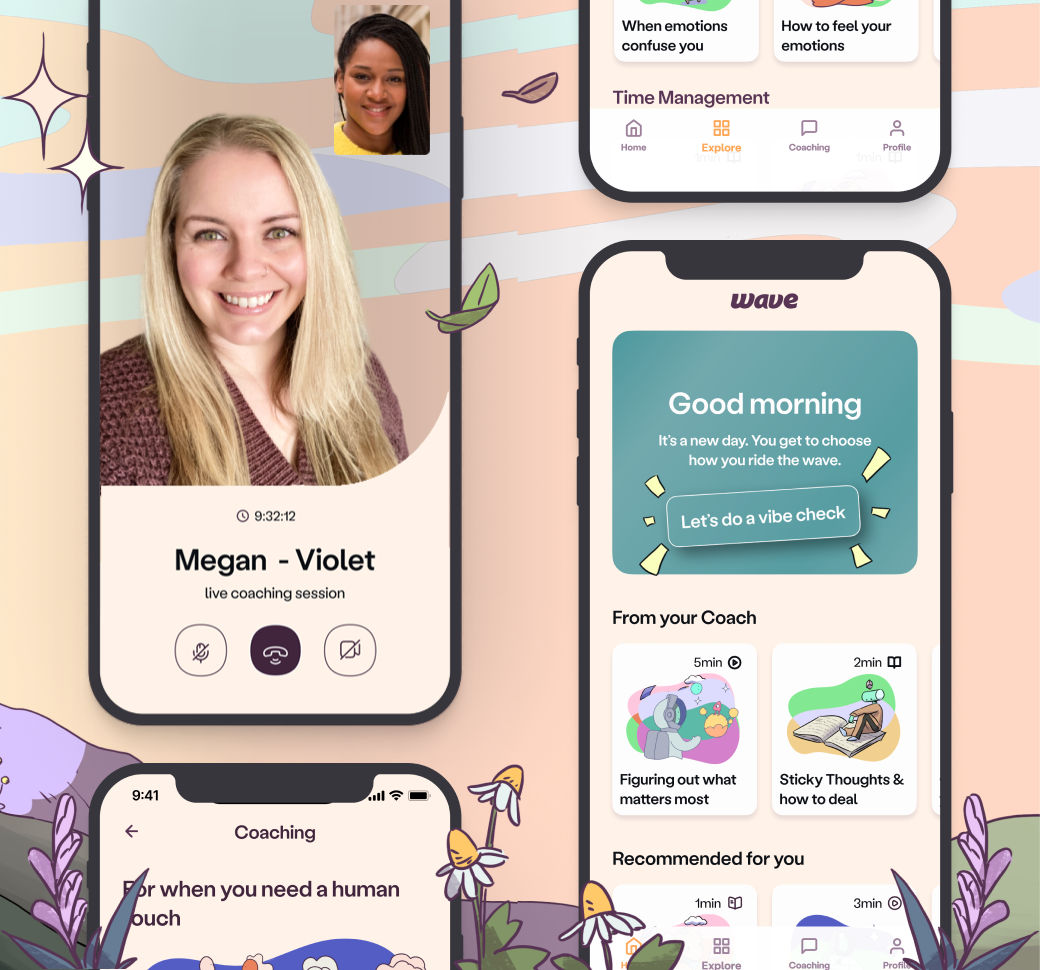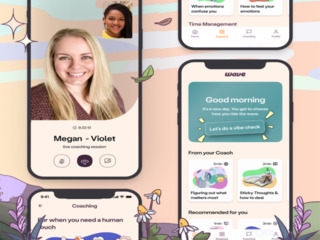 The pandemic had a disproportionate effect on young people, with more than a third of high school students in 2021 reporting they experienced poor mental health during the COVID-19 pandemic, and 44% reported they persistently felt sad or hopeless.
The pandemic had a disproportionate effect on young people, with more than a third of high school students in 2021 reporting they experienced poor mental health during the COVID-19 pandemic, and 44% reported they persistently felt sad or hopeless.
This is the first generation to view mental health care as a crucial part of their lives, explained Sarah Adler, founder and CEO of Wave Life, a science-backed mental health platform aimed at supporting Gen Z, which announced a $6 million seed investment on Tuesday.
“They demand a mental health care experience that’s different from the status quo. This is a generation that is used to having digital access to everything, wants to be highly engaged, and wants to feel seen. We also tend to think about GenZ mental health through a trauma informed lens given that this is the first generation in history that is constantly bombarded with the harsh realities of the world on their phones everyday,” she said.
“If we think about the research that suggested the repeat imagery of 9/11 causing stress reactions in people who watch continuously, we can only imagine what this generation is experiencing with a near constant feed of climate change, racial and ethnic violence, war, pandemic. And they are expected to navigate through the world as if nothing is happening. It’s rough.”
What Wave Life does differently is it conceptualizes Gen Z differently, she explained, while also focusing on what this group is telling us they want, including practical tools to help them feel better, the ability to access them 24/7 in an engaging way, and expert humans when needed.
When they sign up, all Wave users take what it calls a “Psychological Horoscope,” a science-backed assessment to get a sense of where they think they need support. The company has two use cases, “I need something now” and “Better Me,” and for those who need something in the moment, Wave Life provides them with immediate access to playlists of content that are tailored to the individual based on the results of their quiz.
Users can also sign up for a coaching session immediately, and the company is aiming for a 24 hour time to treat.
As it’s still a young company, Wave Life hasn’t yet been able to calculate statistically significant ROI for its users; however, Adler is aiming for significant reduction across depression, stress and anxiety, and quantitative improvement in quality of life. The company has spent the past six months investing in building the data infrastructure to support measurement, including working with an external IRB to do outcomes research.
“We are highly committed towards measuring outcomes and sharing those outcomes with the world. We have spent the past 6 months investing in building the data infrastructure to support measurement. It’s just too hard to go back and build it later,” she said.
“Part of why I started Wave, is because I had enough of highly valued mental health plays that don’t demonstrate ROI to their users or their customers. I have spent my career building measurement systems that demonstrate outcomes. That’s a key part of Wave.”
The new funding found, led by Santé Ventures, along with Hannah Grey, Joyance Capital, Gaingels, and Telocity Ventures, brings its total funding to $8 million, following a $2 million pre-seed round led by Hannah Grey, along with K50 Ventures, Conscience VC, Verissimo, Tribe Capital, and a handful of strategic angels.
Wave Life plans to use the new funding to refine its product offering, including improving its “recommengine,” which will personalize content based on the users immediate and long-term needs. That includes a measurement system that allows the user to feel engaged, while providing important data to their coach. It is also rolling out its internal product to better support its coaching team.
“We fundamentally believe that the more we can support our teams, the better care we will provide. We’ll be testing out some specific supports to our employer partners too,” said Adler.
The funding will also be used to expand further into the employer space, where mental health has become pivotal for employee satisfaction and retention; a majority of Gen Z workers reported mental health issues in the last year. The company currently has a few collaborators of different sizes currently underway and its looking to enter into three to four more partnerships over the next quarter.
“Right now it’s about choosing the best partners, we are lucky enough to have a ton of interest because Gen Z is struggling in the workplace. Being able to grow intentionally to ensure we can best meet the needs of our users and our partners, while demonstrating efficacy is our main goal for the near term. If there aren’t demonstrable outcomes there is no ROI,” Adler said.
Ultimately, though, success for Adler and for the company is simply to get high-quality mental health care into as many pockets as possible.
“Healthcare is a human right, and mental health care is healthcare.”


















